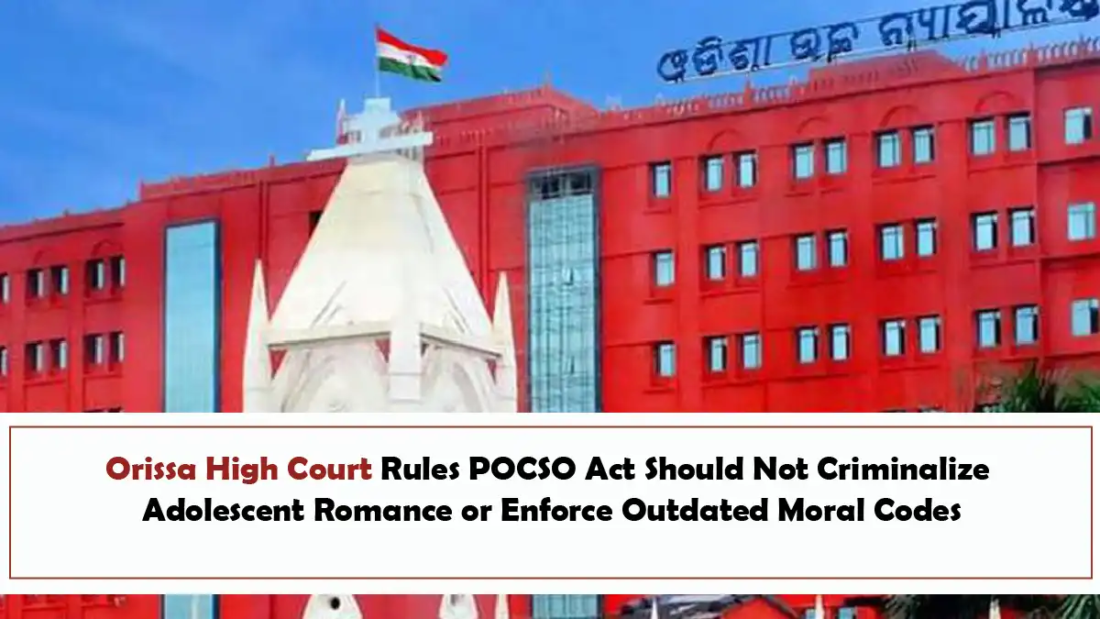Facts of the Case
The petitioner, X, was accused under various sections of the Indian Penal Code (IPC), including Sections 376(1), 376(2)(n), 313, 323, 294, 417, 344, and 506, along with Section 6 of the Protection of Children from Sexual Offences (POCSO) Act. The allegations stemmed from a long-standing sexual relationship with the victim, which allegedly began in 2019 when she was a minor. The victim claimed that the petitioner maintained this relationship under the promise of marriage, which led to two pregnancies, the first allegedly terminated by the petitioner. The last reported incident of forcible intercourse occurred on December 29, 2022. Following a confrontation, threats and abuses were allegedly issued by the petitioner and his family.
However, both families later reached a mutual agreement to resolve the matter amicably, and the petitioner agreed to marry the victim. On this basis, he applied for interim bail for one month to solemnize the marriage. The State opposed this plea, citing the grave nature of the charges and the applicability of the POCSO Act.
Contention of the Petitioner
The petitioner denied the allegations of force and coercion and argued that the relationship was consensual, sustained over several years, and that both parties were close in age. He submitted that the criminal complaint arose only after he initially refused to marry the victim. He emphasized the amicable resolution between the families and requested interim bail solely for the purpose of marriage. His counsel stressed that the case was being misused to enforce familial and social control, not to redress any real instance of abuse.
Contention of the Respondent (State)
The State vehemently opposed the interim bail application, asserting that the charges were severe and particularly grave under the POCSO Act. It warned that releasing the petitioner might lead to intimidation of witnesses and compromise the investigation. The prosecution emphasized that repeated sexual assaults on a minor, irrespective of mutual consent, trigger the stringent provisions of the POCSO Act and that consent in such cases is legally immaterial.
Court’s Observations
Justice Dr. Sanjeeb Kumar Panigrahi highlighted the need for a “nuanced and contextual approach” in adjudicating such matters rather than resorting to a mechanical application of statutory provisions. The Court acknowledged that the relationship appeared to be consensual and between individuals of similar age, lacking indicators of coercion, manipulation, or exploitation.
“It is not the purpose of the law to criminalize youthful romance when both parties are nearly of the same age and there exists no apparent element of coercion, exploitation, or abuse of trust.”
The Court stressed that the legislative intent of the POCSO Act was to protect minors from abuse, not to police adolescent relationships, “The intention of the legislation is not to provide a tool for enforcing outdated moral codes but to serve as a shield against exploitation and abuse.”
Justice Panigrahi also referred to the concept of “Romeo and Juliet clauses” found in other jurisdictions, which prevent the criminalization of consensual peer relationships that fall just outside legal age limits. Though such clauses are not codified in Indian law, the Court opined that judicial reasoning could be inspired by them, “Although our legal system may not expressly incorporate these principles in legislative text, judicial reasoning rooted in equity and proportionality may well draw inspiration from such doctrines.”
Further, the Court underscored that legal proceedings often reflect familial disapproval rather than actual harm, “Parental objections sometimes arise not from a concern for protection but from a desire to enforce social conformity or assert authority over their children’s choices.”
Quoting from the Madras High Court and Bombay High Court, the judgment recognized that adolescent sexuality and relationships are often biologically and socially driven, and therefore should be approached with a compassionate, realistic prosecutorial lens.
“The rigidity of statutory interpretation must not override the requirement for justice to be humane, contextual and proportionate.”
Court’s Order
The Court granted interim bail to the petitioner for one month from the date of his actual release, subject to the following conditions:
- The petitioner shall not indulge in any criminal activity during the interim bail period.
- He shall not tamper with prosecution evidence in any manner.
- He must surrender before the trial court upon the completion of the one-month period.
Thus, the HC concluded by stating that “the grant of interim bail in such contexts does not erode the seriousness of the offence if established at trial but rather affirms the constitutional principle that personal liberty must not be curtailed save for compelling and demonstrable reasons.”
Credits: Adv. Deeksha Rai
 Cart is empty
Cart is empty 

